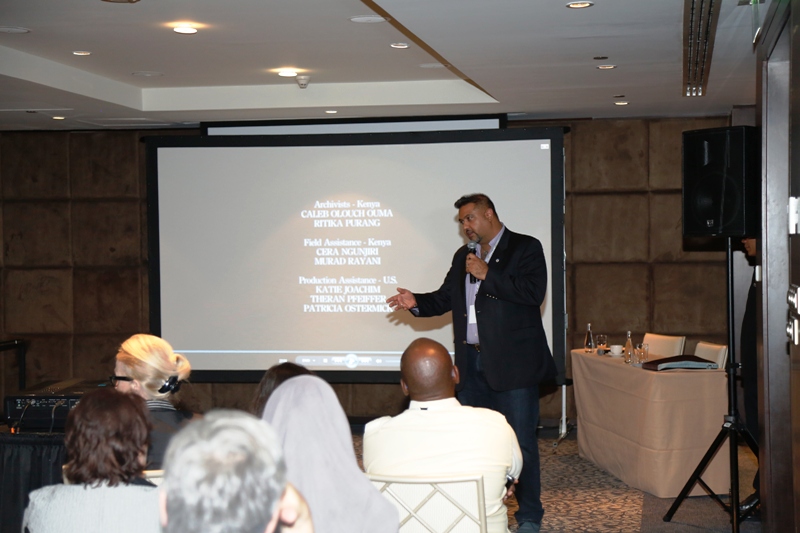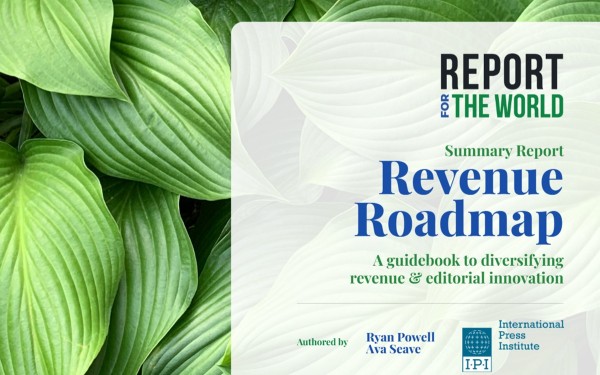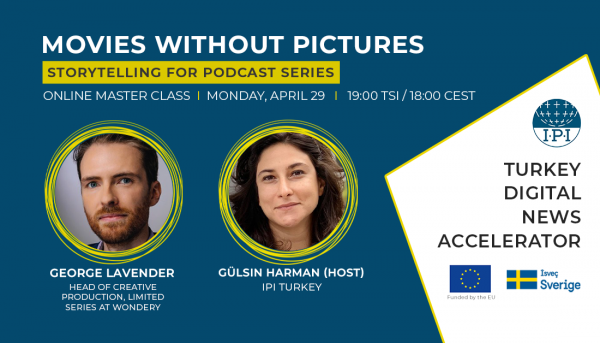Participants at the International Press Institute (IPI)’s World Congress were treated to a screening of the documentary “The Sound Man”, which tells the story of 62-year-old Kenyan sound engineer Abdul Rahman Ramadhan and his incredible and heartbreaking career covering war zones and crisis regions throughout Africa.
Produced by The Duncan Entertainment Group in cooperation with Camerapix, a Nairobi-based production company, the film won 14 awards and was shortlisted for an Oscar.
During his career, Ramadhan recorded sounds of war, famine, genocide and much more in many African countries such as Kenya, Somalia, Rwanda and Ethiopia. The documentary uses archival material from the collection of The Duncan Entertainment Group as well as the collection of the late Mohamed Amin, the founder of Camerapix.
“Abdul has been there at the forefront of the biggest stories from Africa,” Salim Amin, Mohamed Amin’s son and the current chairman of Camerapix, told audience members at the screening.
Ramadhan, who was not present for the screening, worked as a sound engineer for 35 years. Born in Kibera, in Nairobi, the largest urban slum in Africa, he vowed that his children would not live there like he did.
“Kibera means forest,” Ramadhan said in the film. “Before it was a forest of trees, now it is a forest of humans.”
Ramadhan’s job as a sound engineer was important, as sound is a vital part of production. He lamented that, unlike him, the youth of today do not appear interested in sound engineering work.
“Audio work is more than to hear the sound,” he told filmmakers. “Audio is to judge the sound.”
Amin noted at Monday’s screening that “a two-person crew [of a cameraman and a sound engineer] produce better content and increase safety for journalists”. But, he said: “Unfortunately the economics of the business no longer allow that.”
Ramadhan has covered a vast array of conflicts in Africa. During the Ethiopian revolution of 1991, he covered the conflict alongside photojournalist Patrick Muiruri.
“We had to sleep amongst the bodies of dead soldiers so that we wouldn’t get spotted and killed,” Ramadhan told filmmakers, recalling his horrendous experience. “Sometimes we put ourselves in dangerous situations, not because we want money, but because we want people to know.”
Other historic events that Ramadhan and his media team covered include the Rwandan Genocide of 1994 and the post-election violence in Kenya in 2008.
“We’ve slept in cars, on cars, under cars and even under trees and never have I heard Abdul complain,” Muiruri recounted in the film. “We’ve seen dictators, coups and civil wars. It gives you quite a view of the outside world.”
Though the incidents were traumatic, Ramadhan said he made sure he recorded them as best he could.
“I know this work is in my blood and I can’t leave my job,” he told filmmakers.
The stories Ramadhan covered, while often dark and dreadful to record, are important for the world to know.
“As Africans, we brush this part of history under the carpet,” Amin told Monday’s audience. “It is important for young people to see this and not repeat the mistakes. We have to embrace it and talk about it to make sure it never happens again.”



